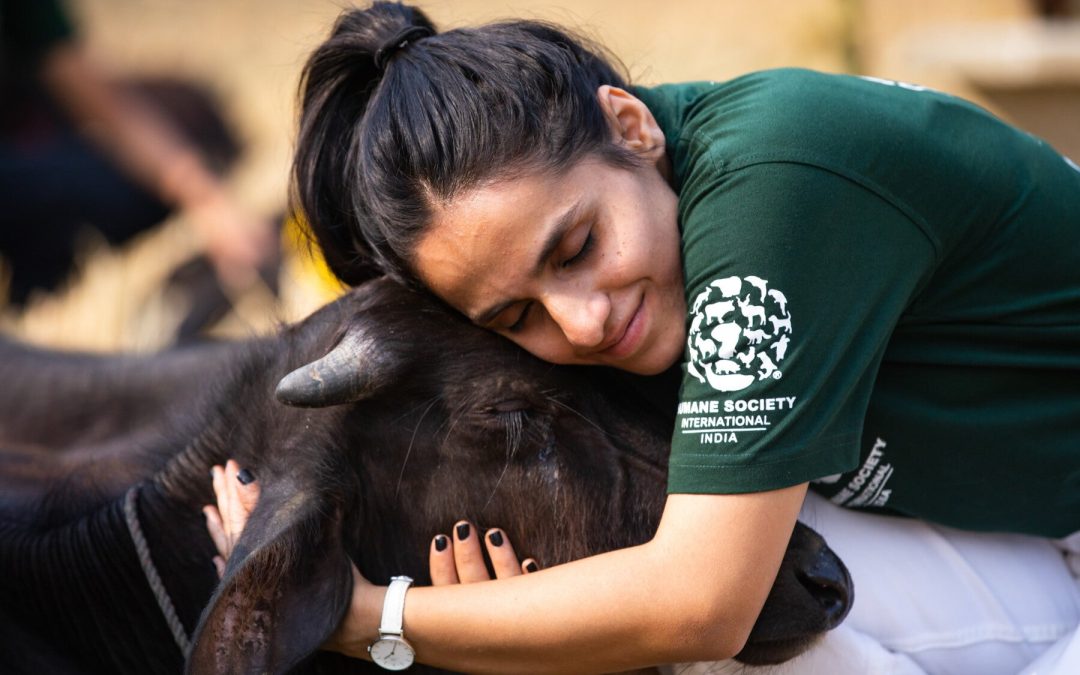NEW DELHI: The mass animal sacrifice at the Gadhimai festival in Nepal prompted a strong response from India’s border guarding force, the Sashastra Seema Bal (SSB), and local authorities across districts in Bihar and Uttar Pradesh. Their efforts resulted in the rescue of over 750 animals, including buffaloes and goats, from being slaughtered earlier this week. Despite these efforts, the festival saw the slaughter of 4,200 buffaloes at the Gadhimai temple on December 8-9.
Approximately 400 of the rescued animals, including 74 buffaloes saved just before the mass sacrifice, have been relocated to Vantara, a wildlife and rehabilitation center in Jamnagar, Gujarat, managed by the Reliance group.
This unprecedented rescue operation was made possible through the intervention of the Animal Welfare Board of India (AWBI) and animal welfare organizations like People for Animals (PFA) and Humane Society International/India (HSI/India). Their volunteers worked alongside district officials to prevent the illegal transportation of hundreds of buffaloes, goats, pigeons, and chickens to Nepal for the sacrifice.
Held every five years in Bariyarpur village, Bara district, Nepal, the Gadhimai festival is estimated to involve the sacrifice of up to 500,000 animals at the Gadhimai temple. While most of the animals are sourced locally, a significant number are transported from Bihar and Uttar Pradesh, despite a 2014 Supreme Court ruling in India prohibiting the illegal transportation of animals for the Gadhimai sacrifice.
Arkaprava Bahar from HSI/India, who led the rescue efforts at the border, explained that determining the exact number of animals sacrificed is challenging, as only buffalo sacrifices are officially recorded. However, it is estimated that between 250,000 and 500,000 animals were sacrificed this year, with 4,200 buffaloes accounted for, based on receipts from the temple committee.
At Vantara, the rescued animals will receive veterinary care, including treatment for the physical toll they endured. Gauri Maulekhi, trustee at PFA, expressed relief, stating, “We are overjoyed knowing these animals have been saved from the horrors of the Gadhimai sacrifice and will now live and thrive in a safe, nurturing environment. Their successful relocation ensures the best long-term care and well-being.”
The AWBI had written to the police chiefs of Bihar and Uttar Pradesh in October, urging them to prevent the illegal transport of animals ahead of the festival. Board member Girish J Shah also coordinated with district authorities to carry out the rescue efforts.
The Gadhimai festival, which has been celebrated for about 265 years, is a month-long event culminating in the ritual sacrifice of hundreds of thousands of animals. Although Nepal’s Supreme Court ordered an end to animal sacrifices in 2019 and urged the authorities to devise a plan to phase out the practice, progress has been slow in enforcing this ban.
Bahar commented on the situation, explaining, “The Nepal Supreme Court acknowledges that animal sacrifice is inappropriate from various perspectives—religious, social, cultural, environmental, moral, and logical. However, it has emphasized that reforms must respect cultural contexts to avoid societal disruption. A direct ban without addressing these factors would be premature.”
He added that the temple committee and local administration continue to use cultural justifications to maintain the practice of sacrifice.






